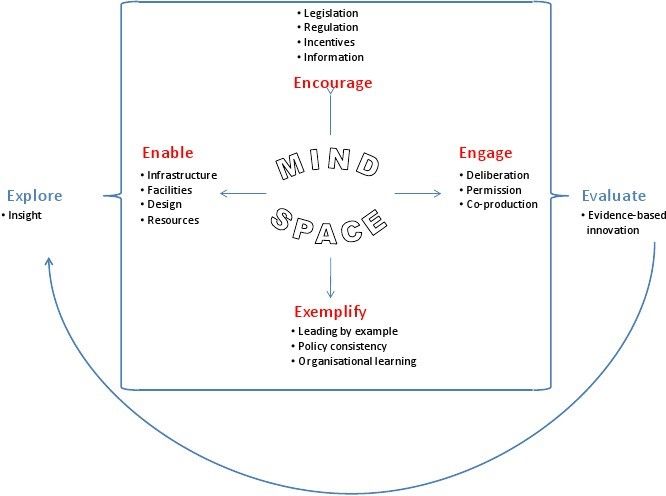 27
მაისი
2022
27
მაისი
2022
ISET ეკონომისტი
 ორშაბათი,
20
ივნისი,
2016
ორშაბათი,
20
ივნისი,
2016

 ორშაბათი,
20
ივნისი,
2016
ორშაბათი,
20
ივნისი,
2016
In November 2015, the National Audit Office of the UK has published a report saying: “The Department for Work and Pensions has successfully introduced automatic enrolment to workplace pensions for large and medium-sized employers.” The National Audit Office found that 58,000 employers have enrolled 5.4 million workers between October 2012 and August 2015. The huge increase in enrolment was due to a small policy change introduced by the UK government in October 2012. The Government switched the default option from one in which employees had to choose to sign up for a pension scheme (‘opt-in’) to one where they were automatically enrolled with the possibility to opt-out if so desired.
Academic research has long supported the idea that a change in the default (from opt-in to opt-out) would go a long way in increasing people’s retirement savings in a cost-effective way (Madrian and Shea, 2001 and Chetty et al, 2013). Yet, the report by the National Audit Office demonstrated that automatic enrolment has been even more successful than originally anticipated. For example:
• Actual opt-out rate between (8 and 14%) has been lower than expected. Department for Work and Pensions originally estimated a 28% opt-out rate.
• The program cost less than expected. Department for Work and Pensions has reduced its implementation costs by £100 million.
The UK Cabinet Office commissioned the Institute for Government to prepare a report about the implications of behavioral science for policymaking. MINDSPACE, which was developed as a result of this initiative, attempted to provide a framework for incorporating science into policy-making. In 2010, a Behavioral Insights Team, known as the “Nudge Unit”, was established by David Cameron under his cabinet. The Nudge Unit managed to reduce fraud, increase savings and employment among minority groups, and improve effectiveness in many other domains of public policy.
The White House launched its own Nudge Unit team under Barack Obama’s administration in 2013. The Government of Australia followed a similar path and introduced its own Nudge Unit inside the Department of Prime Minister & Cabinet in 2015. Taking into account the success of these countries in introducing non-coercive policy measures to improve economic outcomes, it would be reasonable to expect other countries to follow suit.
MINDSPACE is a tool for changing behavior. The most important nine non-coercive and robust influences on human behavior are captured in a simple mnemonic of MINDSPACE and can be used as a checklist when making policy.
| Messenger | We are heavily influenced by who communicates information. |
| Incentives | Our responses to incentives are shaped by predictable mental shortcuts such as strongly avoiding losses. |
| Norms | We are strongly influenced by what others do. |
| Defaults | We ‘go with the flow’ of pre-set options. |
| Salience | Our attention is drawn to what is novel and seems relevant to us. |
| Priming | Our acts are often influenced by sub-conscious cues. |
| Affect | Our emotional associations can powerfully shape our actions. |
| Commitments | We seek to be consistent with our public promises and reciprocate acts. |
| Ego | We act in ways that make us feel better about ourselves. |
Legislation and regulation are traditional tools used to achieve public policy goals and change people’s behavior (pay taxes, save, avoid polluting the environment, etc.). While these tools are often very effective they are not always the best tools at our disposal. First, effective law enforcement is expensive. Second, being imposed on individuals, laws, and regulations are often perceived in a negative way, reducing voluntary compliance. The main advantages of the MINDSPACE approach are over traditional tools are low cost, increased effectiveness, and non-coerciveness.
The 6 E’s of MINDSPACE are: Explore, Enable, Encourage, Engage, Exemplify and Evaluate. Together they represent a framework within which MINDSPACE can be applied. Bringing the 6 E’s together allows policy-makers to address the “so what?” question in practical ways.

On May 31, 2016, the Parliament of Georgia hosted a public discussion on pension reform. The government-approved plan is to establish a voluntary private pension scheme, with equal contributions by the government, employers, and employees. With the UK success story in mind, a key policy challenge for the Georgian government will be to set up the right default options so as to maximize enrolment and, ultimately, savings.
The applicability of MINDSPACE to public policy is virtually unlimited but automatic enrolment in workplace pension savings seems an especially reasonable starting point for Georgia. The UK experience and overwhelming academic evidence suggest that the opt-out enrolment mechanism is superior to the opt-in version. The pension reform is therefore a great opportunity for the Georgian government to start using MINDSPACE in its public policy decisions and make Georgia a better place.
* * *
Givi Kupatadze is a Ph.D. candidate at the Estonian Business School. His primary research interests are economic development and the implications of behavioral economics for public policy. He is visiting lecturer at Ilia State University.





